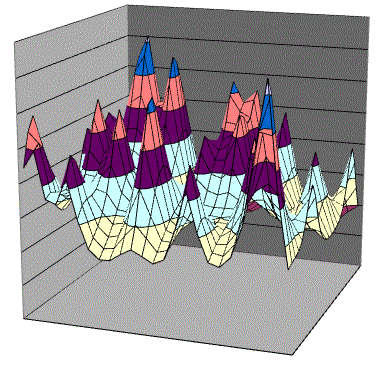Our next discussion is on:
October 10th Monday, 12:00 PM (noon) Eastern Daylight Time
(11:00 AM Central Time)
(please adjust for your time zone)
We will discuss:
MacLeod M, Nersessian N (2018), "Modeling complexity: cognitive constraints and computational model-building in integrative systems biology," History and Philosophy of the Life Sciences, 40(1).
Abstract: Modern integrative systems biology defines itself by the complexity of the problems it takes on through computational modeling and simulation. However in integrative systems biology computers do not solve problems alone. Problem solving depends as ever on human cognitive resources. Current philosophical accounts hint at their importance, but it remains to be understood what roles human cognition plays in computational modeling. In this paper we focus on practices through which modelers in systems biology use computational simulation and other tools to handle the cognitive complexity of their modeling problems so as to be able to make significant contributions to understanding, intervening in, and controlling complex biological systems. We thus show how cognition, especially processes of simulative mental modeling, is implicated centrally in processes of model-building. At the same time we suggest how the representational choices of what to model in systems biology are limited or constrained as a result. Such constraints help us both understand and rationalize the restricted form that problem solving takes in the field and why its results do not always measure up to expectations.
If you wish, please enjoy these short readings that supplement our main paper.
- Engelhardt B, Frohlich H, Kschischo M (2016),
"Learning (from) the errors of a systems biology model,"
Scientific Reports, 6, Article number: 20772. [9 pages]
Abstract: Mathematical modelling is a labour intensive process involving several iterations of testing on real data and manual model modifications. In biology, the domain knowledge guiding model development is in many cases itself incomplete and uncertain. A major problem in this context is that biological systems are open. Missed or unknown external influences as well as erroneous interactions in the model could thus lead to severely misleading results. Here we introduce the dynamic elastic-net, a data driven mathematical method which automatically detects such model errors in ordinary differential equation (ODE) models. We demonstrate for real and simulated data, how the dynamic elastic-net approach can be used to automatically (i) reconstruct the error signal, (ii) identify the target variables of model error and (iii) reconstruct the true system state even for incomplete or preliminary models. Our work provides a systematic computational method facilitating modelling of open biological systems under uncertain knowledge. - Carlson and Doyle (2000),
"Highly optimized tolerance: robustness and design in complex systems,"
Physical Review Letters, 84(11): 2529-32. [4 pages]
Abstract: Highly optimized tolerance (HOT) is a mechanism that relates evolving structure to power laws in interconnected systems. HOT systems arise where design and evolution create complex systems sharing common features, including (1) high efficiency, performance, and robustness to designed-for uncertainties, (2) hypersensitivity to design flaws and unanticipated perturbations, (3) nongeneric, specialized, structured configurations, and (4) power laws. We study the impact of incorporating increasing levels of design and find that even small amounts of design lead to HOT states in percolation. - Perretti, C.T., S.B. Munch and G. Sugihara (2013),
"Model-free forecasting
outperforms the correct mechanistic model for simulated and experimental data,"
Proceedings of the National Institute of Science of the USA,
110(13): 5253-5267. [5 pages]
Abstract: Accurate predictions of species abundance remain one of the most vexing challenges in ecology. This observation is perhaps unsurprising, because population dynamics are often strongly forced and highly nonlinear. Recently, however, numerous statistical techniques have been proposed for fitting highly parameterized mechanistic models to complex time series, potentially providing the machinery necessary for generating useful predictions. Alternatively, there is a wide variety of comparatively simple model-free forecasting methods that could be used to predict abundance. Here we pose a rather conservative challenge and ask whether a correctly specified mechanistic model, fit with commonly used statistical techniques, can provide better forecasts than simple model-free methods for ecological systems with noisy nonlinear dynamics. Using four different control models and seven experimental time series of flour beetles, we found that Markov chain Monte Carlo procedures for fitting mechanistic models often converged on best-fit parameterizations far different from the known parameters. As a result, the correctly specified models provided inaccurate forecasts and incorrect inferences. In contrast, a model-free method based on state-space reconstruction gave the most accurate short-term forecasts, even while using only a single time series from the multivariate system. Considering the recent push for ecosystem-based management and the increasing call for ecological predictions, our results suggest that a flexible model-free approach may be the most promising way forward.
